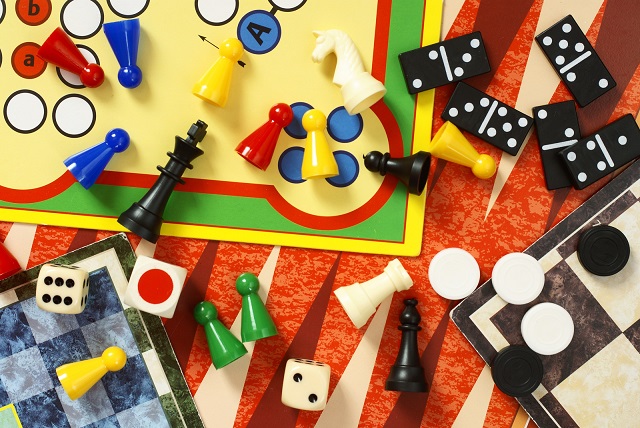
Beginner-friendly board games are perfect for introducing new players to the world of tabletop gaming. These types of games are designed with simple rules and a straightforward setup that make them accessible and enjoyable for individuals who are looking to try their hand at something new.
Not only are they great for getting someone up to speed on the basics, they’re also a fantastic way to foster communication and collaboration between new enthusiasts. This is especially important in today’s society, as it can help bring people together while providing an outlet to have fun and relax together.
The Types Of Beginner-Friendly Board Games Available When it comes to beginner friendly board games, there’s something available to suit almost any interest. For those looking for a classic experience, there are traditional favorites such as Monopoly or Clue which both offer basic game play with some added complexity.
On the other hand, modern variants have made gameplay more interesting than ever before while still remaining easy to understand and entertaining overall. Examples include Settlers of Catan – which utilizes dice rolls and player interaction – or Ticket To Ride – a family-friendly strategy game that has players racing against each other by building track connections around the world.
How Beginner Friendly Board Games Benefit Everyone Involved Not only do these types of board games increase camaraderie and interaction between friends or family members playing together, they can also be used as an educational tool in classrooms or community groups.
Through playing these type of beginner-friendly board games children can pick up the basics of socialization, table etiquette and turn taking more easily than when working through a text book alone; as well as gaining practical skills such as problem solving and counting coins/money etc).
Additionally, they may even pick up some knowledge about certain topics without even knowing it – for instance when playing Ticket To Ride children may subconsciously learn about geography along the way. With so many different topics covered through beginner friendly board games it is no wonder why so many people choose them over physical activity or video gaming; when you play you’re working on something meaningful with tangible rewards that come alongside quality entertainment value.
Benefits and Advantages of Beginner-Friendly Board Games
Playing beginner-friendly board games together with family or friends is one of the most fun and rewarding activities around. Such a pastime has many benefits and advantages, as it can improve social skills, reduce stress levels, let you laugh and relax, plus provide education while having a great time. As opposed to video games, board games generally help enhance problem-solving abilities and promote collaboration by playing in teams or groups.
One of the greatest benefits of playing beginner-friendly board games is that it encourages interpersonal interactions on various levels. For instance, traditional titles like Chess or Backgammon can be a great tool for teaching the importance of strategical planning to all ages. Furthermore, learning how to remember specific elements while relying on your own intuition will make players think thoroughly before making a move, which helps stimulate their intellectual growth and generate critical thinking.
Additionally, there are many educational-driven board games as well that can help children improve their core literacy skills in an entertaining way. Most of them revolve around math exercises such as sorting coins according to their value or understanding fractions.
But no matter what the task at hand is; all these items are designed to help not only kids but adults alike with handling difficult concepts without feeling overwhelmed because every single game is fast-paced and straightforward enough for everyone to understand how it works even if they have never seen something like this before in life.
Different Types of Beginner-Friendly Board Games
There is an ever-increasing need for people to engage in activities that involve interaction and socialisation. Board games not only offer a solution to this, but they also have the added benefit of offering hours of immersive fun, regardless of your skill level. Beginner-friendly board games are easy to learn and do not require any prior knowledge or gaming experience. In this blog post we will explore the following types of beginner-friendly board games:
- Card Games
- Strategy Games
- Abstract Puzzle Games
Card games are some of the most common beginner-friendly board games available. Card games allow up to 4 players at a time and can range from simple activities such as Snap or Memory, where cards are laid out on the table and players must remember which cards represent which set (i.e a pair of kings).
Other card games such as Solitaire involve more strategy as players must think carefully about which moves to make in order to try and progress through the game. Card games usually have specific rules which must be adhered too – making it perfect for those just starting out on their gaming journey.
Strategy board games are slightly more complex than card games but can still be enjoyed by new gamers. Strategy board games generally require 2 or more people who must plan ahead, deducing their opponent’s moves whilst attempting to win the game courtesy of their own tactical prowess.
Famous examples in this genre include Catan, Carcassonne and Chess – however there are lots more interesting puzzle strategy label titles that aren’t as well known which can provide hours of family fun.
Finally, abstract puzzle board game titles also prove popular amongst beginners – offering moderate complexity without being overtly difficult to understand for novice gamers. Abstract puzzle games challenge players based on geometry shapes allowing them to build patterns or create objects using these shapes in different configurations – something like robots instead of pieces – with every move having an impact on either scoring points or losing them too.
Titles such as Tikal and Kodama The Tree Spirits reward both problem-solving skills and tactics ability with often fast paced matches creating high replay value for those willing enough stick with it for long enough periods.
Reviewing Popular Beginner-Friendly Board Games
Board games aren’t just for kids, they’re an inexpensive and easy way to keep adults entertained as well. Board games are a great way to spend quality time with friends and family, but they can be intimidating for beginners. To pick the right game, it’s important to consider the players involved – their ages, knowledge of gaming mechanics, and interests. Here are some of the most popular beginner-friendly board games available.
Catan is one of the most popular modern board games. It is simple enough to understand that even complete novices can jump in quickly, while still offering a lot of challenges to seasoned gamers.
In Catan, players take turns rolling dice to collect resources such as ore or sheep which can then be used to build towns and roads throughout a island hex-board map. Players will race each other around the map so that they build settlements first – whoever has the most settlements at the end wins.
The iconic Settlers of Catan is incredibly user-friendly making it a perfect starter board game for those looking for something deeper than casual entertainment. The game mechanics are intuitive: use your acquired resources from trading and dice rolls on cards to build road networks around kingdom tiles while expanding your ‘army’ (towns).
Each player starts with two roadside settlements but they will need several more before being declared victorious – make sure you have plenty food (knights) and wood (cities) along the way.
Ticket To Ride is another great game for beginners who are looking for a straightforward yet captivating experience. Players draw randomly color coded cards representing different train lines which allow them connect two cities on an ever growing rail network – be careful not to monopolize too much track because your points will suffer if you fail.
Collectively, everyone shares limited transport routes; this makes tickets hard competition toward claiming tracks across Europe and North America – pay attention who opponent’s targets are as you progress through play in order maximize success.
Last one out? No problem either – there’s still multiple paths remain open depending on the colored cards in your hands from start until completion – thus allowing anyone regardless skill level enjoy excitingly close finishes while undoubtedly learning few strategic pointers along way teaching useful tips & tricks internally shared between avid Ticket To Ride fans.
Criteria for Identifying the Best Beginner-Friendly Board Games
Learning to play a new board game can be a daunting task. Often the rules are long and complex, and the learning curve is steep. When selecting board games that are suitable for beginners, it is important to consider a few key criteria: complexity of the rules, length of playtime, player interaction, and amount of luck involved.
Complexity of Rules
When introducing a board game to someone who has never played before, opt for one that has simple gameplay instructions. Try to choose games with rule sets that don’t require multiple steps or tables to reference during play. If the first experience with the game involves too much reading or getting lost in understanding how to move pieces or take turns, it’s likely not going to be a success for everyone at the table.
Length of Playtime
Certain popular board games can last upwards of two hours and include many different components that need to be managed throughout play. These types of games may appeal more experienced gamers but as far as beginner-friendly board games go, they typically will not fare well. Selecting shorter games with simpler components can help engage players quickly and let them develop their skills as they become accustomed to this type of interactive entertainment.
Player Interaction
As much fun as solo boardgames can be, they become enriched when others join in on the action. Look for interesting mechanics that allow players to collaborate and compete against one another accurately represented rules and objectives provide equal playing field for all who take part in these activities Furthermore specific rulings or consequences should have been established prior so disagreements do not take away from overall enjoyment for everyone involved.
Strategies for Winning Beginner-Friendly Board Games
Board games can be an enjoyable time for players of any age. For a beginner, playing board games may not seem that easy. However, there are ways to help those new to the game come out on top with their peers.
Be Aware of your Opponent’s Moves
In order to win beginner friendly board games, it is important to stay aware of what moves your opponents have already taken and figure out which ones they are likely to take next. This can give you insight into the strategies they are using and can help you plan your own moves accordingly.
Being able to observe patterns in the way your opponents move their pieces and recognize where they’re weak can give you the edge over them in many cases.
Create Your Own Strategy
Creating and implementing your own strategy when playing these beginner-friendly board games is critical. While it’s important to play defensively at first, once you get more comfortable with the game, try to think ahead and devise a plan for how you might be able to increase your odds of success as much as possible.
Pay attention to what works for other successful players and come up with a strategy that makes sense from your starting point all the way through to the endgame.
Don’t Underestimate Luck
Luck is also an important factor in winning beginner-friendly board games. Be mindful of what cards or pieces come up during play and find ways around them if luck is not on your side that turn or round. If Lady Luck isn’t smiling upon you this time around then change tactics or strategy if possible so that it won’t take as big a hit from random chance events within the game flow.
Customizing Beginner-Friendly Board Games to Your Preferences
Board games are seen as an ideal way to have fun and socialize with your family or friends. With so many board games available, it’s easy to get overwhelmed by the different options. Fortunately, there are board games that are more beginner-friendly for those just starting out. Customizing these beginner-friendly board games to your preferences is a great way to make the game your own and allows you to learn which features you may enjoy playing.
Choosing a Theme
Themes for some board games can be crucial when customizing the game. It gives players a sense of identity within the world they create in their game.
When choosing a theme, look for features that are intriguing or challenging to incorporate into the game play while maintaining a level of fun that keeps everyone involved with playing the game. Fantasy-style themes such as wizards and dragons or outer space settings featuring aliens can all prove to be memorable elements when setting up a board game session.
Adding Challenges
Creating intricate obstacles and challenges within the board game adds another level of difficulty and narrative that players can use when competing against one another for victory points or objectives set forth by the mission statement of the customizable game itself.
From team endeavors that require cooperation amongst all members in order to succeed or individual tasks that rely on ingenuity and creativity during each turn can add replay value that results in memorable gaming sessions with your family or friends.
Rewards System
Everyone loves rewards. Incorporating bonuses such as additional pieces, extra turns, special privileges like being allowed to move two steps instead of one, allows participants further engagement in completing their objectives.
These rewards also give incentive for players who lag behind others progress wise and encourage them to strive harder if only but for receiving rewards from completing certain tasks or achieving certain goals during their turn while playing the beginner friendly board game you have designed with your own customizations.
Suggestions for Making Beginner-Friendly Board Games More Exciting
Start Small
Many people find it helpful to start with a relatively simple game that focuses on the basics of board-game playing before advancing into a more challenging one. This allows for a gradual level of understanding so that the rules and ideas are not overwhelming.
As an example, Exploding Kittens may be a good choice as it is easy to make and includes several levels of difficulty. Additionally, this type of game requires little set up and can quickly accommodate any group size.
Keep it Simple
It can be tough to make sure that all players understand the point system and components of a game when there are lots of special rules or mods attached. If creating a more straightforward game isn’t possible, it might just be better to keep it less complicated overall by eliminating some sections or decision choices.
That way, players aren’t overwhelmed by too much information yet it still retains enough challenge to remain entertaining. Utilizing only the basic rules should still lead to an enjoyable experience if all participants adhere to them.
Introduce Obstacles
Introducing obstacles gives beginners something distinctive to aim for which will help them improve their board gaming skills while still having fun trying something new. The obstacles should also be simple enough that everyone in the group can strive towards them without feeling overwhelmed or stressed out about the potential consequences of failure or success.
Take these challenges slowly as they increase in intensity – think hangman but with fewer questions and words associated with each other – so that if mistakes are made, nothing dire happens in response but at least everyone involved has had their chance at success on the board game.
Wrapping Up
The benefits of playing beginner-friendly board games are numerous. First and foremost, they provide an opportunity for people of all ages and abilities to work together and bond in a fun atmosphere.
Beginner-friendly board games often do not require complex strategies or specialized knowledge so everyone can participate regardless of their level of experience. These types of games also don’t require advanced math skills or strategy planning which is an added bonus for those who may not have those skills.
Another benefit of beginning-friendly board games is that they allow family members or friends to engage in friendly competition in a lighthearted way Whiles these type of board games may not offer the same intricate strategy as some more advanced options, they lead to enjoyment and create laughter which does wonders for creating lasting memories. In addition, these types of games tend to be very affordable so everyone can join in on the fun.
Finally, playing beginner-friendly board games is also beneficial because it gives players a chance to practice problem solving and learn different methods for stimulating their minds. This allows participants to think critically while developing their own solutions and test those solutions on opponents It’s also a great avenue for sparking conversation amongst the people involved which can lead to deeper connections among them for years to come.




